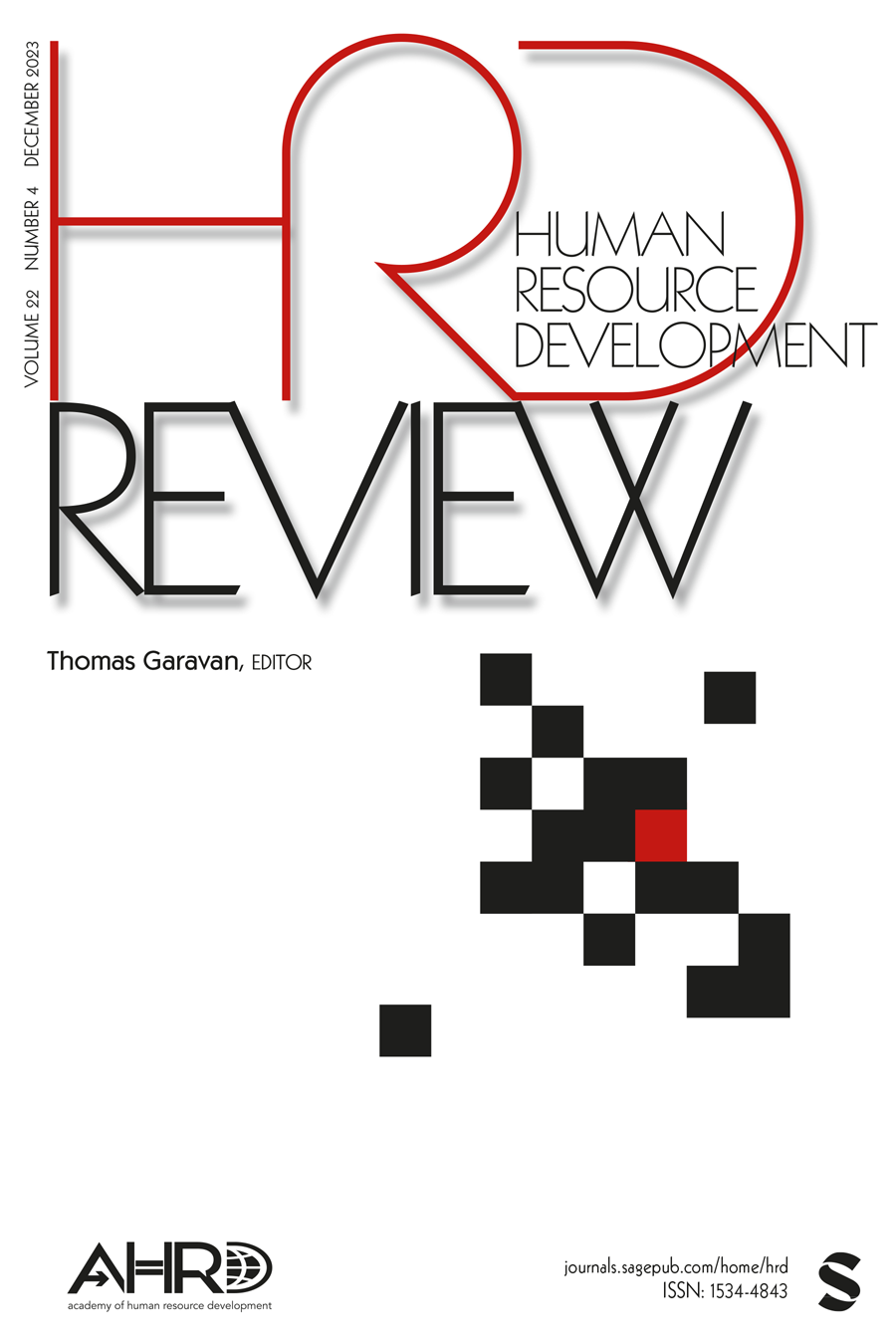成为一个领导者:领导风格和身份的出现
IF 4.6
3区 管理学
Q1 MANAGEMENT
引用次数: 3
摘要
这篇概念性论文提出了一个模型来理解新领导者的领导风格是如何出现的以及自我认同是如何变化的。预测新领导者的人际取向、权力动机、监管重点以及组织期望会影响他们对如何行使权力的信念和领导动机(MTL)。新领导者的权力信念、MTL和对情境需求的感知会影响他们参与交易和转型行为。这是领导风格的出现和领导者身份的发展。随着时间的推移,新领导人的行为、结果和身份形成会改变他们的权力信念和MTL。该模型为人力资源开发研究和实践提供了方向,支持新领导者的发展,并建立符合组织期望的领导文化。本文章由计算机程序翻译,如有差异,请以英文原文为准。
Becoming a Leader: Emergence of Leadership Style and Identity
This conceptual paper presents a model for understanding how new leaders’ styles of leadership emerge and self-identity changes. New leaders’ interpersonal orientation, power motivation, and regulatory focus along with organizational expectations are predicted to influence their beliefs about how to exert power and their motivation to lead (MTL). New leaders’ power beliefs, MTL, and perceptions of situational needs affect their engaging in transactional and transformational behaviors. This is the emergence of leadership style and the development of identity as a leader. Over time, new leaders’ behaviors, outcomes, and identity formation alter their power beliefs and MTL. This model suggests directions for human resource development research and practice supporting new leader development and building a culture of leadership consistent with the organization’s expectations.
求助全文
通过发布文献求助,成功后即可免费获取论文全文。
去求助
来源期刊

Human Resource Development Review
MANAGEMENT-
CiteScore
9.60
自引率
17.20%
发文量
35
期刊介绍:
As described elsewhere, Human Resource Development Review is a theory development journal for scholars of human resource development and related disciplines. Human Resource Development Review publishes articles that make theoretical contributions on theory development, foundations of HRD, theory building methods, and integrative reviews of the relevant literature. Papers whose central focus is empirical findings, including empirical method and design are not considered for publication in Human Resource Development Review. This journal encourages submissions that provide new theoretical insights to advance our understanding of human resource development and related disciplines. Such papers may include syntheses of existing bodies of theory, new substantive theories, exploratory conceptual models, taxonomies and typology developed as foundations for theory, treatises in formal theory construction, papers on the history of theory, critique of theory that includes alternative research propositions, metatheory, and integrative literature reviews with strong theoretical implications. Papers addressing foundations of HRD might address philosophies of HRD, historical foundations, definitions of the field, conceptual organization of the field, and ethical foundations. Human Resource Development Review takes a multi-paradigm view of theory building so submissions from different paradigms are encouraged.
 求助内容:
求助内容: 应助结果提醒方式:
应助结果提醒方式:


